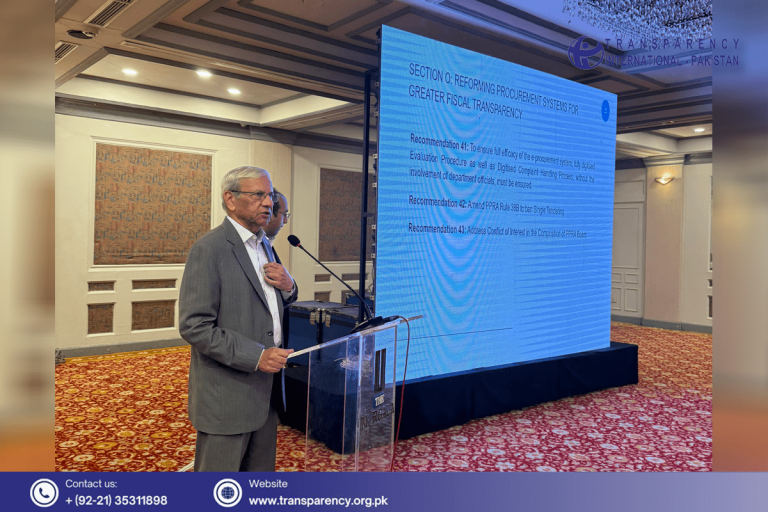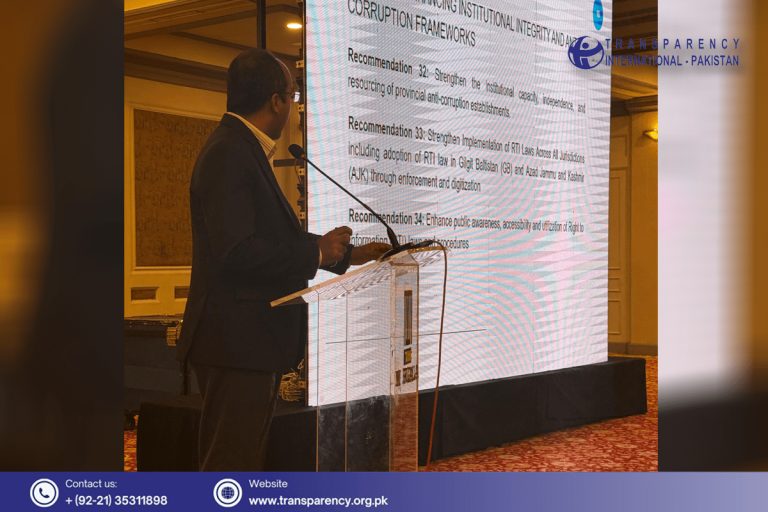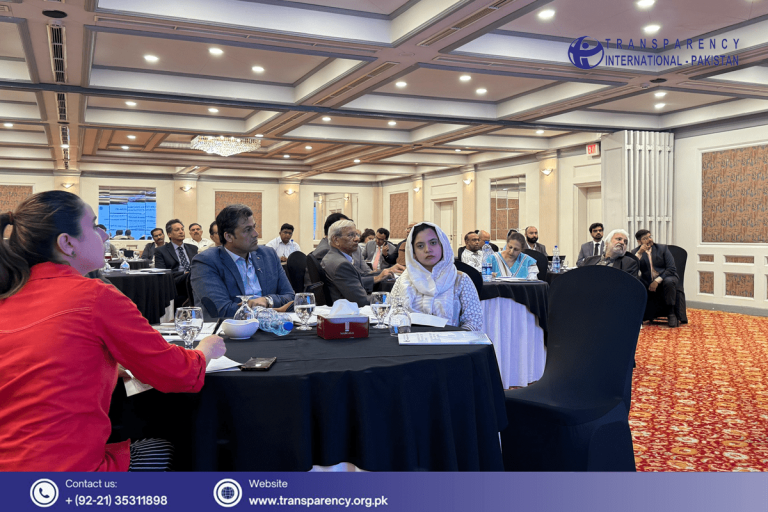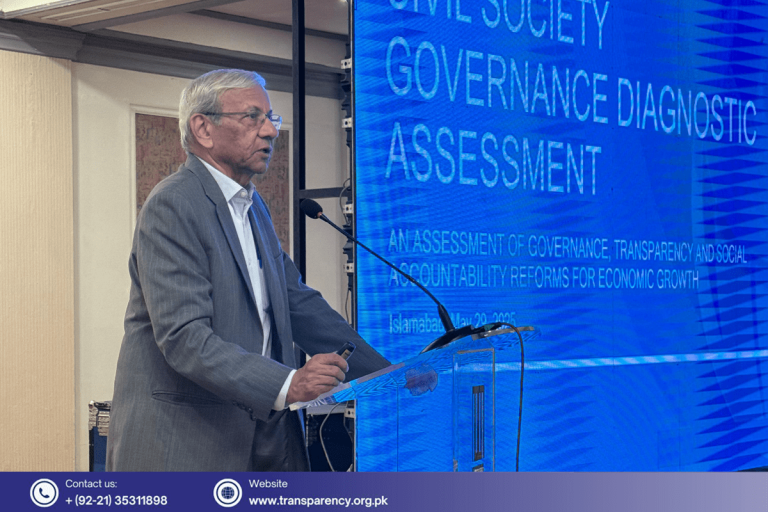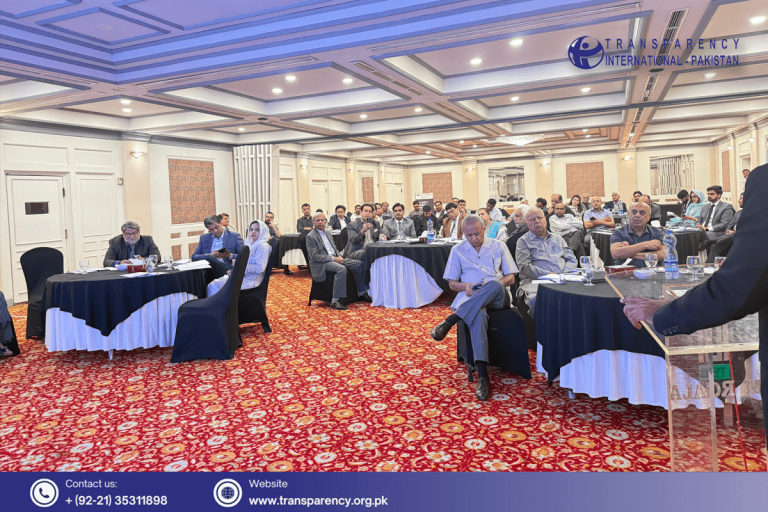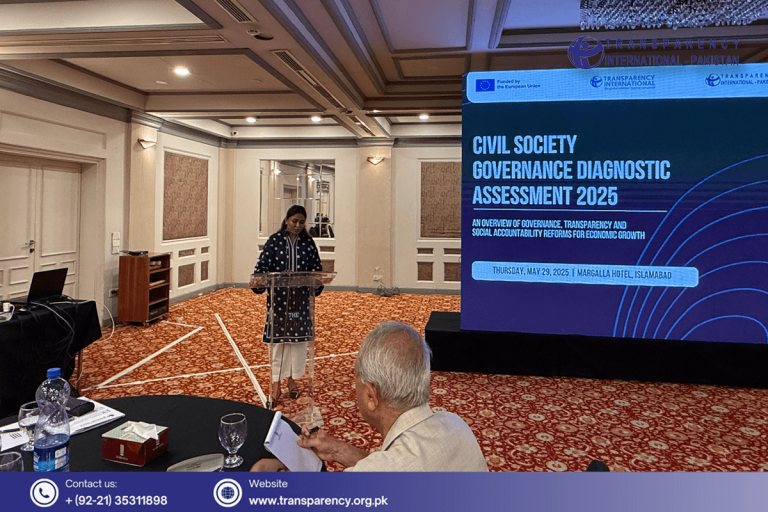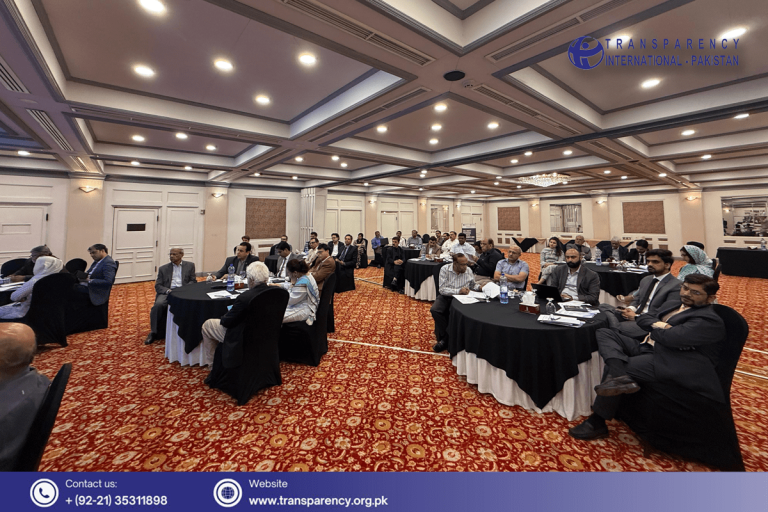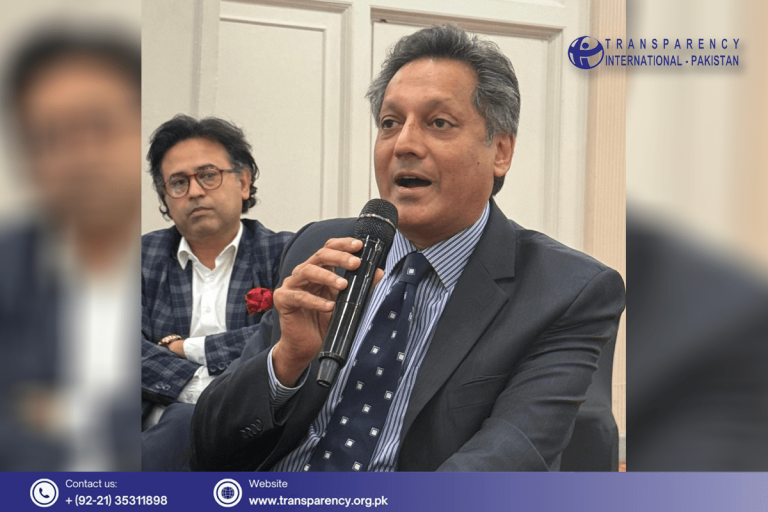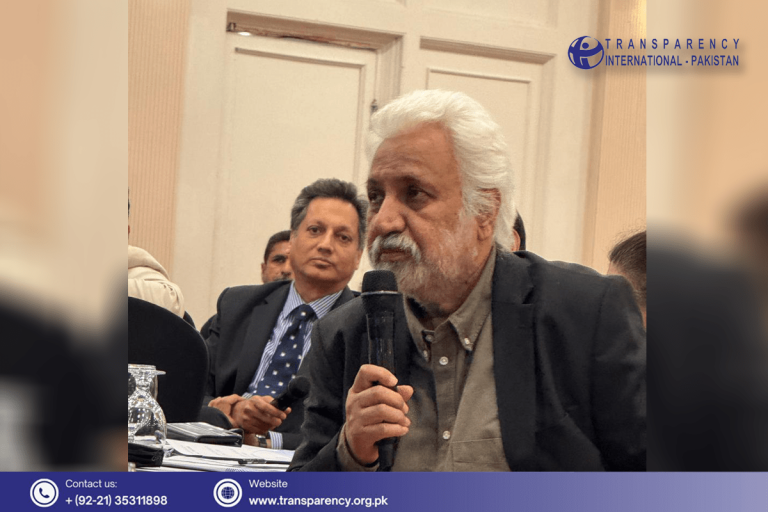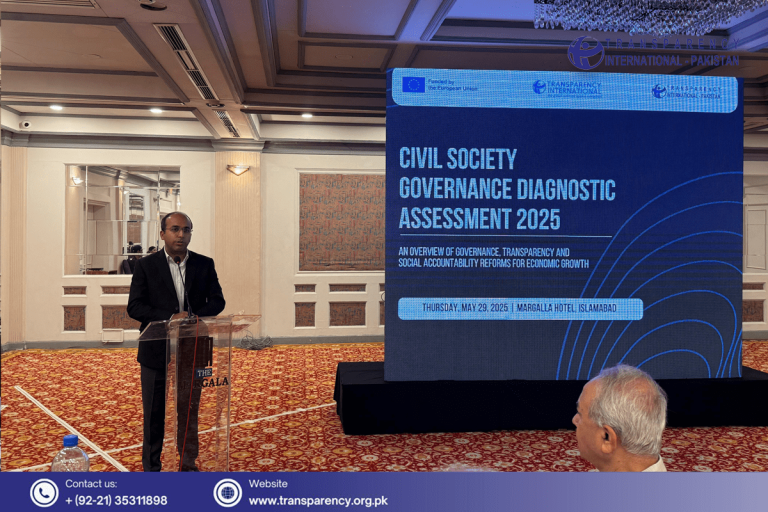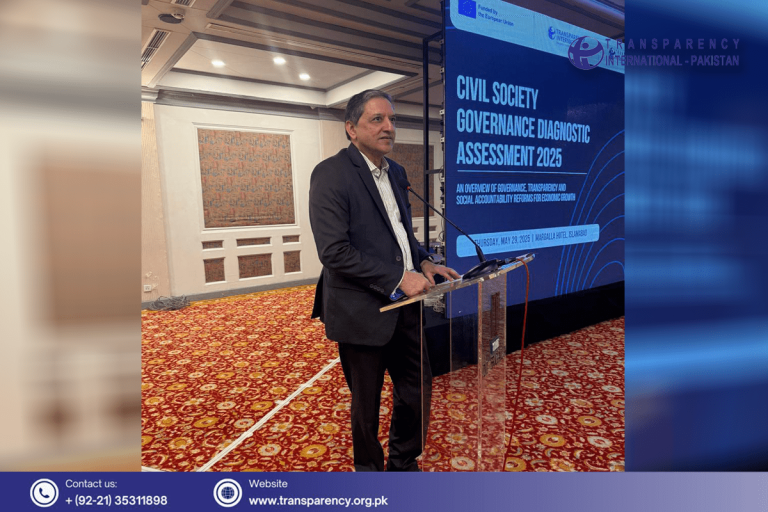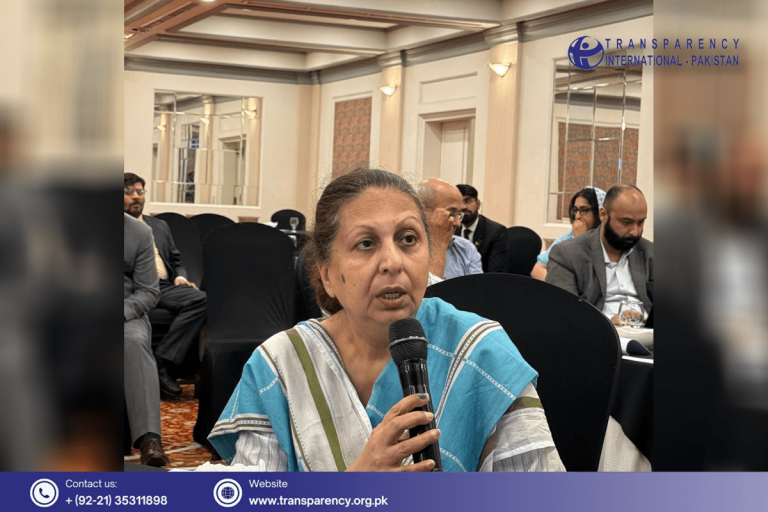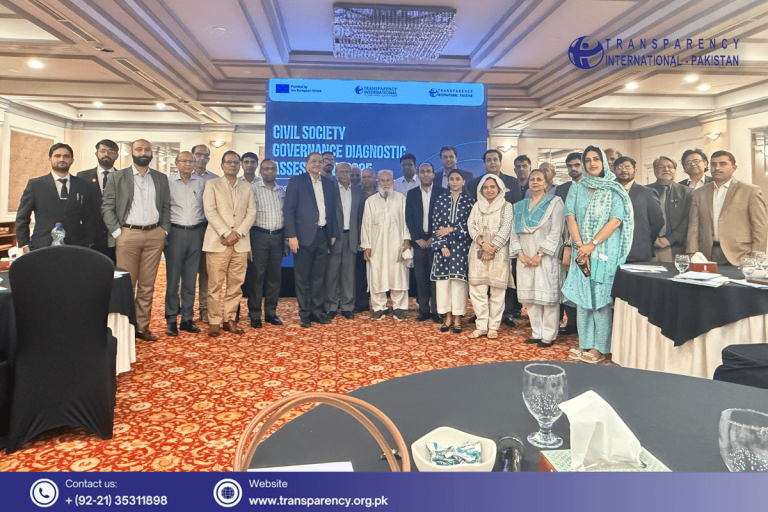Civil Society Governance Diagnostic Assessment – Stakeholder Consultations
Civil Society Governance Diagnostic Assessment – Stakeholder Consultations
Islamabad | May 29, 2025
Transparency International Pakistan organized its second stakeholder consultation under the Civil Society Governance Diagnostic Assessment in Islamabad, bringing together a broad spectrum of voices including public officials, civil servants, parliamentarians, academics, civil society leaders, journalists, and governance experts. The session was opened by Mr. Kashif Ali, Executive Director of TI Pakistan, followed by a briefing on the diagnostic’s objectives and methodology by Ms. Raima Mahmood, Policy and Research Coordinator. Technical presentations were delivered by Dr. Kaiser Bengali on fiscal governance and by Mr. Kashif Ali on governance frameworks and institutional reform pathways.
The discussions revealed deep-rooted concerns around elite capture of key economic sectors such as sugar, energy, and automobiles—sectors shielded by regulatory patronage and exempted from transparency mechanisms. Participants noted that Statutory Regulatory Orders (SROs) are often misused to protect powerful interests, while penal actions are disproportionately applied to smaller actors. A recurrent theme was the entrenched nexus between the executive, legislature, and judiciary, which was described as a vicious cycle that blocks meaningful reform. The prevailing mindset of “ruling rather than serving” was seen as a critical obstacle to governance transformation.
Education governance emerged as another major area of concern. Stakeholders highlighted the culture of ad hocism in academic appointments, impunity for corrupt vice chancellors and rectors, and the lack of clear selection criteria. There were calls for merit-based, legally enforceable rules for appointments across public institutions, including SOEs, along with proposals to limit the recycling of retired bureaucrats as “independent directors” in state-owned enterprise boards. Participants also proposed involving credible institutions like LUMS, IBA, and NUST in public recruitment and testing processes to curb malpractice by unregulated testing agencies.
On fiscal governance, it was recommended that the property taxation system be overhauled to reflect real market values and reduce fragmentation across tax instruments like capital gains, excise, and stamp duties. It was suggested that promoting digital payments through tax rebates could discourage undocumented cash transactions. Budgetary reforms were also discussed, including the need to amend Article 84 of the Constitution to require year-round parliamentary approval of supplementary grants and to strengthen PACs with adequate technical staff, including accountants.
Further discussions centered on inclusive and gender-responsive budgeting, with stakeholders emphasizing the need to prioritize social spending and shield development budgets from executive cuts. A comparative analysis of provincial budgeting practices—such as KP’s performance-based model and Punjab’s automation drive—was proposed to identify scalable reforms. In terms of digital governance, participants stressed the importance of designing systems that are accessible to marginalized groups and flagged cases of exclusion, such as in Punjab’s disability registration initiative. The use of AI in RTI systems and digital service delivery was welcomed, provided strong safeguards are in place.
Several institutional recommendations were put forth: update the Rules of Business to reflect the 18th Amendment; address outdated constitutional references such as Article 247; and make ECC decision-making more evidence-based and transparent. Participants urged the creation of a public-facing, real-time tracking system for parliamentary committee recommendations and policy implementation, to hold decision-makers accountable. The Pakistan Citizen Portal was cited as an underutilized data source, with over 7 million grievances that could inform policy improvements.
In his closing remarks, Senator Saleem Mandviwalla, Chairperson of the Senate Standing Committee on Finance, emphasized the urgency of institutional continuity, strong rule of law, and inclusive decision-making as the pillars of democratic governance. The workshop concluded with a networking tea and a collective resolve to push forward the reform agenda through sustained civic engagement and evidence-based advocacy.

